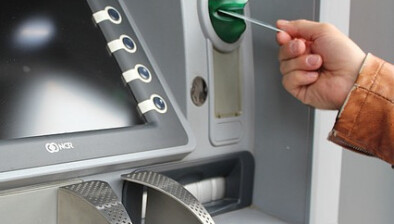Which?: Banks are getting fraud reimbursement decisions wrong in many cases

Some major UK banks are getting decisions about certain customer scams and reimbursement wrong in around eight in 10 cases seen by the Financial Ombudsman Service (FOS), according to Which?.
Which? said a “reimbursement lottery” leaves many victims struggling to recover their money when they have been targeted by fraudsters.
Several UK banks have signed up to a voluntary reimbursement code on bank transfer scams, also known as authorised push payment fraud (APP), which instructs them to reimburse customers who are not at fault and provide them with adequate support.
However, the number of new authorised fraud complaints made to the FOS soared in 2020-21, from 3,600 to 7,770.
Three-quarters (73%) were upheld in favour of the customer. Authorised fraud also includes some card fraud, where the dispute is about whether the consumer authorised a payment or withdrawal with their card.
Which? said figures it had obtained from the FOS show NatWest and Royal Bank of Scotland (RBS) – which are part of the same banking group – are getting it wrong in 86% of cases, with Santander (82%) and Bank of Scotland (81%) following.
NatWest told Which?: “At NatWest, our proactive stance and relationship with FOS has brought forward the settlement of many of our cases earlier than required. As a result of this our overturn rate for the period is inflated, we do however expect to see this normalise in 2022.”
While challenger bank Starling (80%) also had a high complaint uphold rate, this was based on a much smaller number of closed cases than other firms, Which? said.
According to Which?, many fraud complaints against Lloyds Bank (78%), Revolut (77%) and Nationwide (74%) are also being upheld in favour of the customer. Aside from Revolut, these banks are signed up to the voluntary scams code.
Which? has called for much greater transparency about firms’ behaviour and approach to reimbursement which would require banks to regularly publish data, including their reimbursement rates for all of the APP fraud cases they handle each year.
The figures also show that on average, in the last financial year, it took nine-and-a-half months for the FOS to resolve an authorised fraud complaint, STV News reports.
Jenny Ross, Which? Money editor, said: “Fraud can have a devastating financial and emotional impact on victims, so it’s shocking that so many banks are failing to handle cases correctly, often wrongly and unfairly denying victims reimbursement.”
Santander told Which?: “We invest a great deal in protecting our customers against fraud, raising awareness of scams and fraud, and working closely with FOS, as well as other industry bodies, to ensure customers are treated fairly.”
Lloyds Banking Group added: “We continue to work closely with FOS to help ensure we get it right first time for our customers.”
Nationwide said: “We work openly and closely with the FOS to understand its views on these cases and continue to make enhancements to fraud/scam measures as a result.”
Revolut commented: “The increase in APP fraud is an industry-wide issue… We communicate frequently with customers to help them spot and avoid fraud.”
The percentages of cases upheld in consumers’ favour by the FOS after complaints were made relating to authorised fraud, according to Which? are as follows:
- RBS, 86%
- NatWest, 86%
- Santander, 82%
- Bank of Scotland, 81%
- Starling Bank, 80%
- Lloyds, 78%
- Revolut, 77%
- Nationwide Building Society, 74%
- Monzo, 73%










